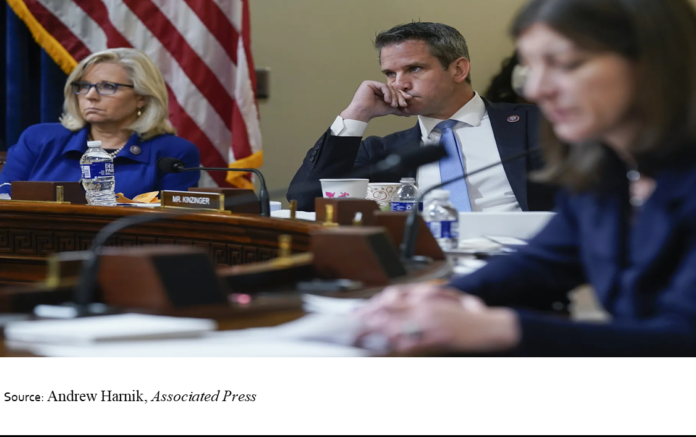By Vihaan Majumdar
The Republican National Committee (RNC) declared the January 6th attack as “legitimate political discourse,” and censured two House Republicans, Adam Kinzinger (R-IL 16th District) and Liz Cheney (R-WY At-large District), both of whom have been very outspoken in condemning the deadly attack. They were among the ten House Republicans who voted to bring impeachment charges against Trump as a result.
The party later went further a few days later, releasing a resolution slamming Kinzinger and Cheney, saying they were participating in “the persecution of ordinary citizens engaged in legitimate political discourse.” Both Kinzinger and Cheney are on the House Select Committee investigating the attack.
The RNC ultimately attempted to give clarification, saying the censure resolution was not referring to those who violently stormed the Capitol. However, the censure resolution made no such distinction. It is only the latest attempt by Republicans to downplay the violence and Trump’s broader attempts to invalidate the results of the 2020 presidential election.
The resolution came days after Trump, who is very publicly mulling a re-election bid in 2024, suggested that he would pardon those convicted for actions related to the January 6th attack.
However, the censure and the statements were slammed by some Senate Republicans. Senator Mitt Romney (R-UT) said in a statement, “Shame falls on a party that would censure persons of conscience, who seek truth in the face of vitriol. Honor attaches to Liz Cheney and Adam Kinzinger for seeking truth even when doing so comes at great personal cost.” Other condemnations came from Senator Bill Cassidy (R-LA) and Governor Larry Hogan (R-MD). Both Cassidy and Romney voted to convict Trump in his second impeachment trial. Romney had previously rocked the country by voting to convict Trump of abuse of power in his first impeachment trial.
But by far the most substantial rebuke came from Senate Minority Leader Mitch McConnell (R-KY), who said, “It was a violent insurrection for the purpose of trying to prevent a peaceful transfer of power after a legitimately certified election from one administration to the next. That’s what it was.” McConnell, unlike his House counterpart Kevin McCarthy (R-CA 23rd District), has publicly feuded with Trump in recent months, declaring that Trump bore responsibility for the violence at the Capitol, although he ultimately voted to acquit Trump of all charges.
McConnell’s comments reflected a growing sentiment from establishment Republicans, who believe the resolution may have unnecessarily split the party and cost them some inroads with voters as they attempt to retake Congress in the 2022 midterm elections.
Kinzinger is not seeking reelection, while Cheney is facing a primary challenge without the backing of her party, both growing trends for anti-Trump Republicans in Congress and state governments. Charlie Baker, the popular governor of Massachusetts who publicly declared that he did not vote for Trump in 2020, was the most prominent casualty, with polls suggesting he would be crushed in the Republican primary before he ultimately decided to not seek reelection.

